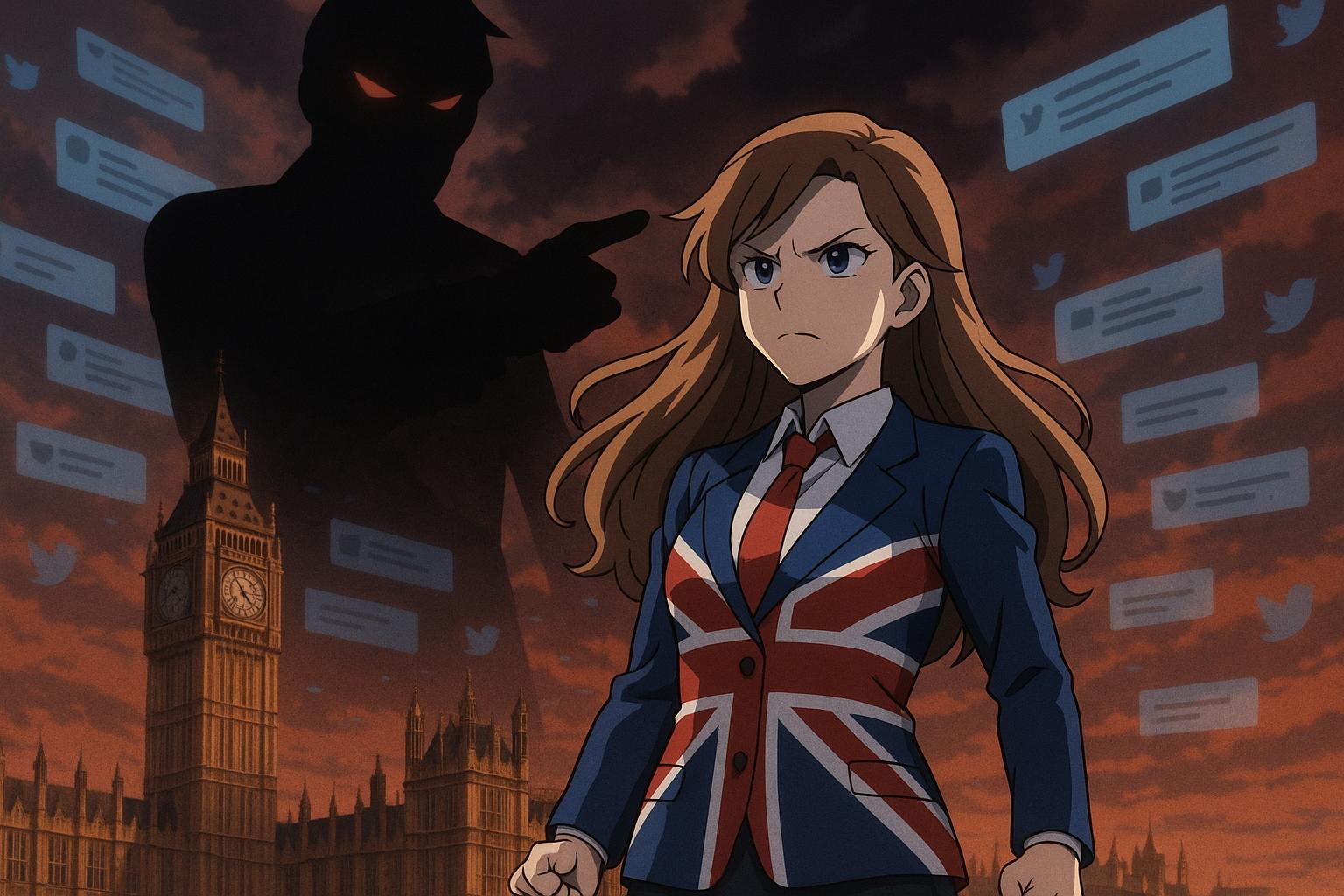Boris Johnson has raised alarm bells about Britain perilously approaching a police state under the new Labour government, particularly concerning the erosion of free speech. His remarks follow the troubling case of Lucy Connolly, a mother sentenced to an astonishing 31 months in prison for a racially charged tweet issued during a moment of national upheaval. This case starkly highlights the chilling implications of governmental overreach and the crucial battle for freedom of expression in the UK.
Connolly, 42, was incarcerated for inciting racial hatred after tweeting about “mass deportation now” and suggesting arson against hotels accommodating asylum seekers. This provocative message emerged in the wake of the heart-wrenching Southport murders, which saw three young girls lose their lives to an alleged migrant. Her tweet, rife with the raw emotions of the time, attracted over 310,000 views before she deleted it within hours. Supporters argue her actions reflect a mere lapse in judgment, particularly considering the apparent severity of her punishment in contrast to the leniency afforded to far graver offenses.
While condemning the court's ruling as a "crazy and inhuman judgment," Johnson emphasized that it represents a troubling trend of criminalizing dissenting voices. He pointed to alarming figures revealing that UK police conduct over 10,000 arrests annually related to online speech—far exceeding similar statistics in authoritarian regimes like Russia. This situation, he asserts, undermines Britain's legacy of free speech, casting a shadow over Keir Starmer's leadership which seems bent on curtailing citizens' rights to express themselves without fear of reprisal.
Critics of Connolly's punishment, including her husband Ray, have drawn attention to glaring inconsistencies in the justice system. Ray Connolly, a conservative councillor, highlighted the dissonance in sentencing, noting that his wife received a more severe punishment than many violent offenders. He referenced a domestic abuser with 52 prior convictions who was handed a mere suspended sentence, raising profound concerns about a two-tier justice system that appears to selectively punish certain views while turning a blind eye to more serious criminal behavior.
Toby Young, general secretary of the Free Speech Union, amplified these concerns, stating that Connolly’s sentence exemplifies a gross miscarriage of justice. "How can it be right that Lucy serves over two years for a tweet while members of grooming gangs receive lesser sentences for their heinous acts?" he queried. This alarming disparity resonates with many, propelling a wider conversation about the current state of justice and civil liberties in the UK.
Conversely, Keir Starmer, leader of the Labour Party, has stressed the necessity of balancing free speech with public safety, asserting, “I’m equally, though, against incitement to violence.” He defended the judicial apparatus, upholding that while free speech is a cherished right, it must be curtailed when it crosses into the realm of incitement.
The Lucy Connolly case stands as a potent flashpoint in the ongoing argument surrounding free speech in the UK, particularly amidst escalating tensions around immigration and national identity. As this critical discourse unfolds, it is evident that the struggle to safeguard civil liberties against an increasingly authoritarian state remains a significant concern for many Britons.
Source: Noah Wire Services
